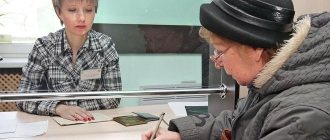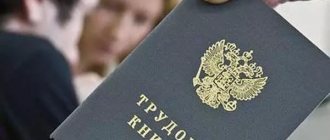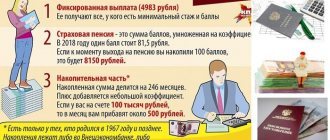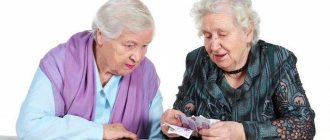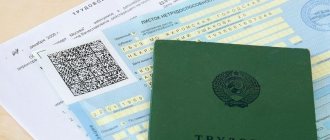Family Law > Elderly > Is there any experience in caring for elderly people over 80 years of age?
In life, the most helpless people are those whose state of health does not allow them to fully care for themselves.
As a rule, they are provided with the necessary support by their closest relatives, but in some cases it happens that a complete stranger takes care of the elderly.
The legislation of the Russian Federation provides that a citizen caring for a person in need receives compensation payments for care (KVU).
In 2020, the amount of such payments is about 1,200 rubles, they are accrued along with pension payments to the disabled person. Along with this, another question arises: is caring for an elderly person over 80 years of age included in the experience?
What is caring for a pensioner over 80 years of age?
As old age approaches, it becomes more difficult for any elderly person to take care of himself in everyday life. If the situation is aggravated by illness, the situation is even more difficult. In this case, outside support from other people is constantly required. Old people, as a rule, receive free help from their relatives. Not everyone is aware that for persons 80 years of age and older, the state provides the opportunity to receive assistance from other citizens, which is paid for by the Pension Fund.
The compensation is paid monthly along with the pension. In the circumstance that the payment is due to the caregiver, the amount is received by the disabled person who needs help. Upon receipt of funds, the elderly person independently pays the citizen caring for him. Not everyone can pay for caring for an elderly person over 80 years of age. Russians who do not work and do not receive benefits as unemployed, but are able to work according to pension legislation, can count on compensation.
For care, family ties and living together do not play a role. Strangers have the right to look after the elderly and receive payment for it. The category of disabled persons entitled to financial assistance from the state includes:
- disabled people of group I;
- pensioners recognized by the medical commission as requiring constant care;
- citizens 80 years of age and older.
Payment of compensation to pensioners being cared for
The pension authority for a disabled person is carried out simultaneously with the receipt of a pension in the same way as the pension is paid (through a credit institution, post office or alternative pension delivery body) for the current month (monthly).
As mentioned earlier, the pensioner independently transfers compensation to the non-working person who looked after him.
Question
How to receive payments for caring for disabled citizens?
Answer
The compensation payment is made together with the pension of the person in need of care . Next, the disabled person independently transfers the funds to the person caring for him. Depending on the contractual obligations, the pensioner himself transfers the amount of payment for care in the manner agreed with the caring citizen.
What duties must be performed to care for a pensioner?
Helping the elderly is not only a troublesome task, it is an even greater responsibility and hard work. Patronage of an elderly person over 80 years of age implies the organization of meals, household, household and hygienic services by a person who has voluntarily taken on such work. Different disabled people require different types of help depending on their health status. Some lonely people need more human attention, help with cleaning and buying groceries, others need support at a different level.
Often, pensioners draw up contracts with their assistants, which spell out the responsibilities and scope of assistance. Receipt of monetary compensation is accompanied by the performance of duties:
- pay bills (utility, tax, etc.) from the ward’s own funds;
- buy necessary products, clothes, shoes, hygiene items;
- help with everyday matters (cleaning the premises, personal hygiene procedures);
- buy prescribed medications and ensure they are taken on time;
- Cook;
- regularly measure biomarkers - indications that require monitoring (pressure, blood sugar, temperature, heart rate);
- send and receive correspondence.
Current legislation does not introduce a definition of the concept of “guardianship over an elderly person with the right to inherit his property.” This means that automatic inheritance of the ward’s housing by the person caring for him is not expected. If an elderly pensioner independently decides to leave his property (part of it) to an able-bodied assistant as an inheritance, then it is necessary to write a will.
- Diet for gallstone disease
- How to treat lichen in humans
- How to hold Uraza correctly for a woman
What changes came into force on November 9, 2020
Decree of the Government of the Russian Federation No. 1287 adjusts the accrual rules:
- Compensation payments for the care of persons with disabilities (except for those who have been disabled since childhood). This also includes patronage of an elderly person - a person over 80 years old or a pensioner who needs supervision for medical reasons.
- Monthly payment for care of disabled children or people with disabilities from childhood of group I.
Legislative changes affect the procedure for providing documents. Before Resolution No. 1287 came into force, it was possible to apply for guardianship with payment from the budget for this service by confirming the fact of lack of work. To do this, you had to present your work book to the Pension Fund. According to the new rules, there is no need to provide it - all data on the work of a candidate for trustee is already in the Pension Fund database.
- Which years qualify for raising the retirement age in Russia - complete list
- Cream ice cream for cake - preparation technology with cream, sour cream or custard with photo
- Berries that reduce the risk of blood clots
The procedure for applying for benefits according to the new rules
To start receiving government payments for care services, you must
- Obtain written confirmation from the ward of his consent to supervision. If this person is declared incompetent, then his official representative must sign.
- Submit an application to the Pension Fund. There you must indicate the personal information of the trustee (last name, first name, patronymic, date of birth, registration address, contact phone number). The application must mention the absence of work and formulate a request for processing payments for supervision services.
- Visit the Pension Fund together with the person for whom you plan to supervise. Submit the prepared documents there. If the ward does not have an objective opportunity to visit the Pension Fund (for example, due to serious illness), then a notarized consent to process payments is required. In special cases, the Pension Fund client group can visit your home.
- Receive a response to your submitted application. By law, Pension Fund employees must check documents within 10 days. If the decision is positive, the payment of benefits for caring for an elderly person or disabled person will begin from the day the package of documents was submitted. If necessary, additional information may be required. If the Pension Fund refuses payments, the applicant is provided with a written response indicating the reasons preventing the registration of guardianship.
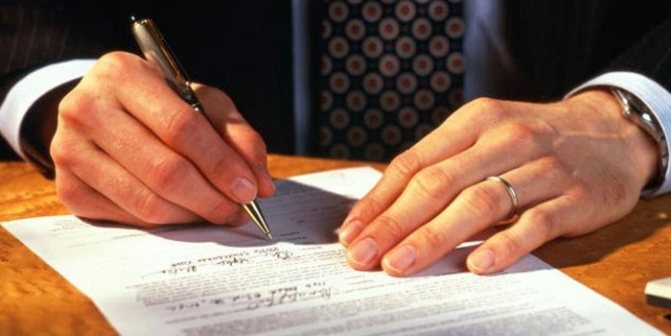
List of care documents
After new rules for the payment of compensation for caring for disabled people and pensioners came into force in November 2020, the number of documents required to obtain this benefit was reduced. According to the new legislation, a person applying for payment for care services for a disabled or elderly person provides:
- statement;
- passport of a Russian citizen;
- insurance certificate with SNILS number;
- permission of parents or guardianship structures (for persons 14–18 years old);
- certificate from the university confirming your studies (for students).
Additionally, documents from the ward are prepared:
- consent to guardianship (given in person or requiring a notarized signature);
- passport of a Russian citizen;
- work book (not required for processing monthly payments, that is, for benefits for caring for a disabled person of group 1 since childhood or a disabled minor child);
- an extract from the medical and social examination report assigning the ward a certain disability group (for persons with disabilities);
- medical certificate on the need for outside help (not necessary for disabled people and for receiving benefits for caring for an 80-year-old pensioner).
Compensation payment for caring for disabled citizens
For caring for elderly people over 80 years of age, compensation of 1200 rubles is paid. The amount is established by the President by Decree No. 175 of February 26, 2013. The money is transferred to the assistant by an elderly person. The amount of compensation increases by the regional coefficient at the place of residence of the pensioner. Payments are provided for each ward person. So, if a citizen helps two pensioners, the monthly amount will be double the amount of 1200 rubles, that is, 2400 rubles.
The amount is not so large and mostly family members receive payments for caring for a relative over 80 years of age. Indexation for this type of benefit is not provided for by law. The application of the regional coefficient corresponds to the indicator that is used to increase pensions for residents of the territories:
- the Far North and regions equated to it;
- with a difficult climate;
- others – where additional costs (financial, physical) are needed to ensure normal life.
What documents are needed
In addition to the application, written consent to care from the disabled pensioner (or his representative) is required from the caring unemployed person.
Documents to confirm your identity should also be available when applying for compensation. If you have a work book, you must provide it. A certificate from an educational institution, if the caring person is studying.
The full list of documents to be provided depends on the category of the disabled person:
1. If care is provided for a group 2 disabled person, an additional conclusion from the medical organization on the need for care will be required. 2. When submitting an application to care for a disabled person of group 1 or a pensioner over 80 years of age, no additional documents will be required.
Documents available in the payment file and at the disposal of government agencies do not need to be provided. The disability certificate is in the pensioner’s file, and the request to the employment center is made by the territorial office of the Pension Fund itself.
Requirements for a caregiver
Registration of care for a pensioner over 80 years of age is possible if specific conditions are met. The state requirements for a person caring for an elderly citizen are:
- citizenship of the Russian Federation;
- permanent residence in Russia;
- ability to work under pension legislation;
- lack of income from labor and entrepreneurial activities (no transfers of insurance contributions to the Pension Fund, no registered individual entrepreneur status);
- absence of registration as unemployed in the employment service with payment of unemployment benefits.
Any entrepreneurial activity of the guardian (for example, lawyer, security) is regarded as work if he has a valid individual entrepreneur status, even if the non-working entrepreneur temporarily has no income at the time of receiving payments. Students/pupils can receive compensation, since study is not included in the work (insurance) period, and student scholarships are not counted as income.
In addition to students, payments can be received by housewives and women who, while on maternity leave, receive benefits from social security authorities, since the employer does not maintain a job for them. The age limit for citizens caring for the elderly is legally limited. This opportunity is available to Russians who are already fourteen years old. For such a group of young people, it will be necessary to confirm the consent of the parents and the guardianship and trusteeship authority for the provision of such a service.
Termination of care
The duration of care is limited by the occurrence of circumstances that exclude the right to a monthly compensation payment. The main possible reason for termination of payment for a caregiver is going to work .
All caregivers must be able to work and not work while receiving the payment. Receiving unemployment benefits from the employment service is also considered payment, so the right is lost even if you register at the labor exchange as unemployed.
You should also apply for termination of payments in cases of expiration of the disability period of the disabled person or the actual termination of care for him.
The caregiver should not have any income during the payment period. Therefore, even an unemployed pensioner cannot take care of the Pension Fund money.
Important: the caregiver is obliged to inform the Pension Fund within 5 days about the termination of care when applying for a job or receiving benefits from the Social Security Fund. Please note that it is not the pensioner who must report, but the caregiver. Such a short period is necessary for the timely termination of these payments in order to avoid overpayment.
Care money is registered in the name of the caregiver, and if the fact of work is discovered, the caregiver must reimburse the money to the Pension Fund. The pension fund will not withhold any overpayments found from the pension of a disabled pensioner.
How to arrange care for an elderly person
Caring for a grandparent over 80 years of age involves a simple registration procedure. Helping the elderly and disabled requires a certain psychological endurance and skills, representing self-sacrifice to the detriment of one’s interests. When appointing an assistant, preference is usually given to relatives and friends. To begin the procedure, the ward gives the person caring for him written consent to receive and pay for such assistance.
Afterwards, the potential assistant needs to contact the territorial branch of the Pension Fund with an application, which can be submitted in person or remotely through the State Services Portal. The required documents are attached to the application. The entire package is accepted by a fund specialist, who is obliged to issue an official receipt indicating that he has accepted the documents for consideration.

List of documents
To assign an additional payment, you need to collect documents (originals) and prepare photocopies of them according to the list. Documents are submitted from a citizen who is going to care for an elderly person:
- Application for compensation.
- Passport/Birth Certificate.
- Work record book/Certificate from the educational institution indicating the expected time of graduation.
- Certificate from the employment service confirming the absence of unemployment benefits.
- SNILS.
- Confirmation of absence of entrepreneurial activity (certificate from the tax authority).
- Written parental consent/permission from guardianship authorities (for Russians 14-16 years old).
Documents from a person who requires the help of an outsider are also needed:
- Passport.
- Consent from the sponsored pensioner for a specific person, indicating the full name and passport information of both.
- Pensioner's ID.
- SNILS.
- Extract from the medical and social examination report on disability.
- Certificate from a medical institution regarding the need for constant supervision (for a pensioner under 80 years old).
- How to sew a hidden zipper into a dress
- Potatoes in pots in the oven: recipes
- How to lose weight with laxatives at home
Applications for payment processing
A sample application will be provided to you by the Pension Fund, or you can download it from the official website of the Pension Fund. The application for payment of compensation from the caring person must contain the following information:
- name of the local body of the Pension Fund;
- about the applicant - SNILS number, citizenship, passport data (series, number, date of issue, also date, place of birth), registration and actual residence, telephone number;
- indication of the applicant’s employment status – the person does not work, does not receive benefits/pensions;
- date of commencement of care for the citizen, indicating his full name and circumstances requiring constant supervision - age/disability/as indicated by the medical institution;
- a request for compensation with reference to the instructions of the Decree of the President of the Russian Federation of December 26, 2006 No. 1455;
- familiarization with the warning about the need to notify the Pension Fund of the occurrence of circumstances under which payments are terminated;
- a list of attached documents;
- date of completion, signature and its transcript.
Appointment dates
Ten working days are allotted for consideration of the submitted documentation package. If the application is rejected, the Pension Fund must notify the applicant no later than five days after the decision is made, explaining the reason for the negative result and the procedure for appealing the decision. Three months are given to submit missing required certificates and documents. The month of acceptance is considered the month of application. Payments are assigned from the month when the documents were transferred, but not before the grounds for compensation arise.

Where to apply for payments
The service for processing monthly compensation payments is provided by the Russian Pension Fund. Specialists at the Pension Fund of Russia will review the set of documents and assign the required 1200 or 5500 for additional payment.
You should contact the Pension Fund where the pension is paid to the disabled pensioner. Another thing is that it is not necessary to contact the pension office personally to process payments. To submit documents, you can use the personal account of the insured person and submit an application directly from home.
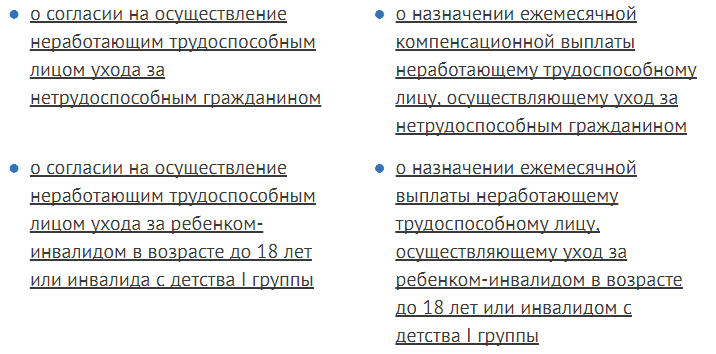
Where to submit
The documentation required to process the refund can be sent through the official website of government services or transferred to the Pension Fund (territorial office) in person. For personal treatment, it is possible to make an appointment in advance via the Internet, which saves time by avoiding queues. The benefit is assigned by the branch of the Pension Fund, which accrues a pension to the elderly person.
If you care for several elderly people, you need to contact the departments responsible for the pension payments of each person under your care. When a person under his or her care changes his/her place of residence, the caregiver will have to submit an application to another department corresponding to the new address. It may be necessary to resubmit the package of papers.
Northern surcharge coefficient
For all types of monthly compensation payments for the disabled, a northern coefficient can be established. The allowance increases by the corresponding regional coefficient of the Far North or equivalent area only in the case of joint residence of the caregiver and the pensioner.
For example, a person registered as a disabled person of group 1 and the pensioner himself live in the Magadan region. When paying long-term care compensation, a northern supplement coefficient of 1.7 will be applied. The total amount will no longer be 1200, but 2040 rubles.
For Russian citizens, the fact of residence in the RKS and ISS is confirmed by registration documents or in a statement from the caregiver.
Is there any experience in caring for the elderly?
The time an able-bodied person cares for someone who has reached the age of 80 is taken into account in the total length of service required to apply for a pension. It should be noted that experience in caring for the elderly over 80 years of age is subject to credit if this period is preceded or followed by a working period of any duration. The pension coefficient is calculated at the rate of 1.8 points per year of such supervision and does not depend on the number of wards. The specified conditions are legally established by the Laws:
- “On labor pensions in the Russian Federation” No. 173-FZ, articles 11 and 30;
- “On insurance pensions” No. 400-FZ, article 12.
It is important to consider: this insurance period only determines the right to pension provision; the time of care is not included in the calculation of the pension amount. Law No. 18-FZ, which determines the allocation of federal funds for specific pension payments, provides for reimbursement to the future pensioner of the transfer of insurance contributions during this time. The compensation amount for non-insurance periods included in the pension period is determined individually in each case.
What are the terms of application and payment?
Care compensation will be assigned from the first day of the month the application for care is received. The application will be considered only if all required documents are available .
For example, when applying for care for a disabled person of group 1 on January 12, compensation will be paid from January 1, 2020. However, it cannot be paid before the date of receipt of the right to it.
If an application for additional payment for caring for a pensioner after 80 years of age was submitted on January 26, 2020, and the pensioner turned 80 only on January 15, then the care supplement will be assigned only from the date of entitlement to it, that is, from January 15, 2020.
The duration of care is limited only by the occurrence of circumstances that exclude the right to a monthly compensation payment. Let's look at the possible reasons for removing the premium.
Reasons for terminating old-age care benefits
Payment of compensation is terminated for certain reasons, not limited to the cause of death of one of the persons. If situations arise (listed below), the caregiver must immediately report the circumstances to the Pension Fund. Sometimes people just forget about it. Such irresponsible forgetfulness leads to improper payment of amounts, which is fraught with the formation of debt to the state. Five days are allowed for notification. You can choose the sending method in the same way as when submitting an application - in person or remotely.
Payments stop if:
- Receiving compensation:
- got a job;
- registered at the labor exchange and receives benefits as an unemployed person;
- performed his duties in bad faith, which is confirmed by a statement from the sponsored pensioner or the results of an audit by PF employees;
- he himself decided to abandon his duties;
- started receiving a pension;
- called up to serve in the army.
- Ward:
- lost group I disability due to a revision of the previously assigned group;
- left the country and was deregistered;
- sent for permanent residence to a state social service institution;
- died.
